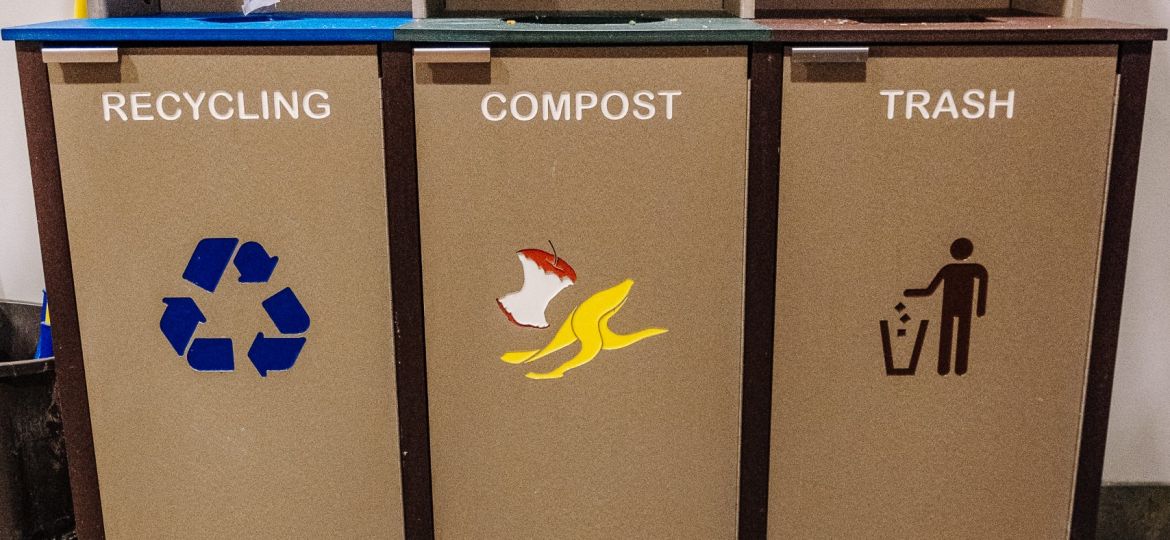
The Environmental Coalition brought composting to Ytterboe and Rand residence halls in mid-October.
The arrival of compost bins to residence halls began in the 2018-19 school year, following their addition to Buntrock Commons in January 2018 and Rolvaag Memorial Library and Boe Chapel in March 2018.
Signs provided by the Environmental Coalition hang above many of the new compost bins, indicating what can and cannot be composted. The compost is then taken to a commercial compost facility, the Mulch Store, located in Rosemount, Minn.
The Environmental Coalition’s efforts have had a significant impact on waste management on campus. Thorson, Ellingson, Mohn and Kildahl residence halls now have a 26 percent diversion rate for all food waste, according to the Environmental Coalition’s latest waste audit. The potential diversion rate is 79 percent, leaving a 53 percent gap for remaining improvement.
The potential diversion rate is significantly higher than the actual diversion of waste due to issues with contamination of food waste in recycling and landfill bins, said Environmental Coalition organizer Addie Poore ’20.
“We would rather people, if they are unsure or if they’re too lazy to sort their compost and waste in general, put it in the landfill than in the compost or recycling, if they’re not going to be fully educated,” said Environmental Coalition organizer Katie Stein ’20.
Composting sites can only handle a certain percentage of impurity, which leads to material that is not fit for composting going to waste, Stein said.
The Environmental Coalition combats improper sorting by having landfill bins be the most accessible option for disposing waste.
“We make [compost] the hardest bin to get to to avoid the impurities,” Stein said.
Poore and Stein believe the College has yet to achieve its full composting potential in part due to a lack of education and knowledge among the student body about how to sort waste.
The group has used ‘toilet talks’ in Ellingson as educational outreach to communicate proper composting practices. The Environmental Coalition hopes to expand understanding on the subject by launching an education campaign during first-year orientation, Poore said. Stein hopes that composting can achieve a similar mainstream status in waste management to recycling.
With the help of Steve Rasmussen, assistant director of custodial facilities, the group is working to bring composting to Hoyme and Melby residence halls within the next two weeks. The Environmental Coalition then hopes to bring composting to the remaining dorms – Larson, Hilleboe and Kittelsby. They eventually hope to expand to Skoglund.










You must be logged in to post a comment.